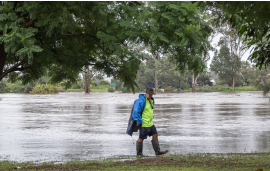Extreme Cold
It is important to be prepared for winter weather before it strikes.
How to prepare
Winterize your home by insulating walls and attics, caulking, weather stripping doors and windows, and insulating pipes. Learn how to shut off water valves in case a pipe bursts.
If there is a cold weather or snow warning
Review your household emergency plan. Listen or watch for updates on radio, TV, and social media. Prepare an emergency kit and have the BC Hydro number ready in case you need to report an outage.
What to do during extreme cold and snow
Seek warm shelter immediately and listen or watch for updates on radio, TV, and social media. Allow faucets to drip a little to avoid freezing up.
If you go outdoors
Dress appropriately. Wind chill can cause cooler temperatures to occur. Limit your time out and watch out for signs of frostbite or hypothermia.
Take care when shoveling. Vigorous exercise and cold temperatures can cause high blood pressure and accelerated heart rates. Be cautious when walking on icy streets.
Phone 9-1-1 if you see utility lines or poles down, or see any sparks, flames or smoke.
If you must drive
Travel in the day, don’t travel alone, and keep others informed of your schedule. Stay on main roads and avoid back road shortcuts.
- Prepare a vehicle emergency kit
- DriveBC road conditions map
- Transport Canada: Tips for safe winter driving
- Shift into winter





